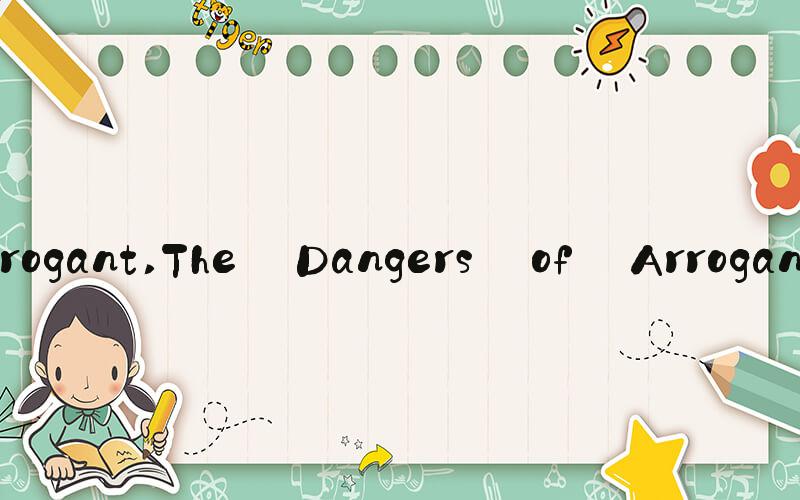
 Arrogant: The Pitfalls of Overconfidence
Arrogant: The Pitfalls of OverconfidenceArrogance is a personality trait that manifests in an individual as a sense of self-importance, overconfidence, and a condescending attitude towards others. While confidence and self-assuredness are essential for success, arrogance can often lead to negative consequences in both personal and professional settings. In this article, we will explore the pitfalls of arrogance, its effects on our relationships and careers, and ways to overcome this trait for a more fulfilling life.
The Dangers of ArroganceArrogance can have a negative impact on every aspect of our lives, from social interactions to work environments. In relationships, arrogance can lead to alienation, conflict, and a lack of empathy towards others. It can also damage our professional reputation by creating tension with colleagues and hindering collaboration. Research has shown that individuals who exhibit arrogant behavior are often disliked, perceived as less competent, and experience greater stress and dissatisfaction in their personal and professional lives.
Arrogance can also lead to professional failure. While confidence is a critical ingredient for success, overconfidence can result in a lack of ability to acknowledge and learn from failure. Arrogant individuals are often resistant to feedback and constructive criticism, which can hinder their growth and development. Furthermore, arrogance can lead to complacency, as individuals believe they are above the need for improvement or change.
Overcoming ArroganceOvercoming arrogance requires self-reflection and a willingness to change. Here are a few tips to help overcome the pitfalls of overconfidence:
Practice humility: Awareness of one's strengths and weaknesses is critical for personal and professional growth. By acknowledging our limitations, we may be more willing to seek feedback and learn from our mistakes.
Listen to feedback: Instead of dismissing or becoming defensive in response to feedback, try to approach it with an open mind and an eagerness to learn.
Challenge yourself: Stepping out of our comfort zone and taking on challenges can create opportunities for personal and professional development.
Develop empathy: Being empathetic towards others and recognizing their perspectives can foster a deeper understanding of our own behavior and its impact on those around us.
Foster a growth mindset: A growth mindset involves a belief that abilities can be developed through hard work and dedication. By adopting this mindset, we create a strong foundation for personal and professional growth.
ConclusionArrogance can hinder our ability to connect with others and achieve our potential. Recognizing and addressing this trait through humility, self-reflection, and a willingness to learn can create opportunities for personal and professional growth. As we strive towards success, let us remember that humility, empathy, and a growth mindset are critical for achieving success and building fulfilling relationships.
